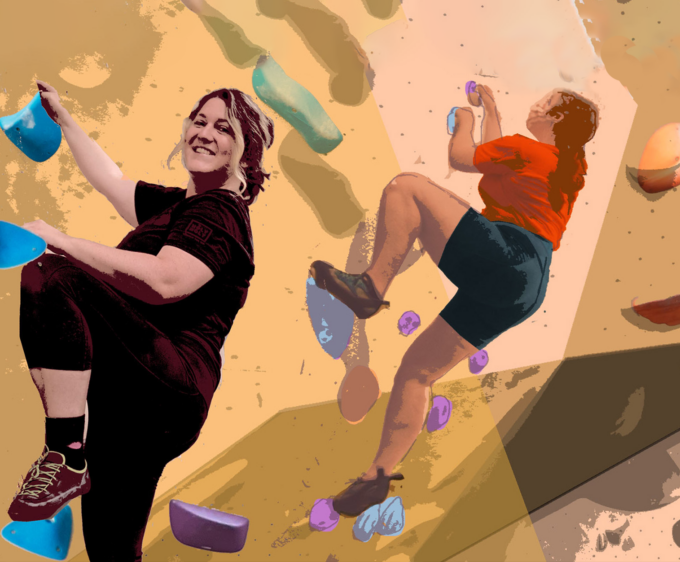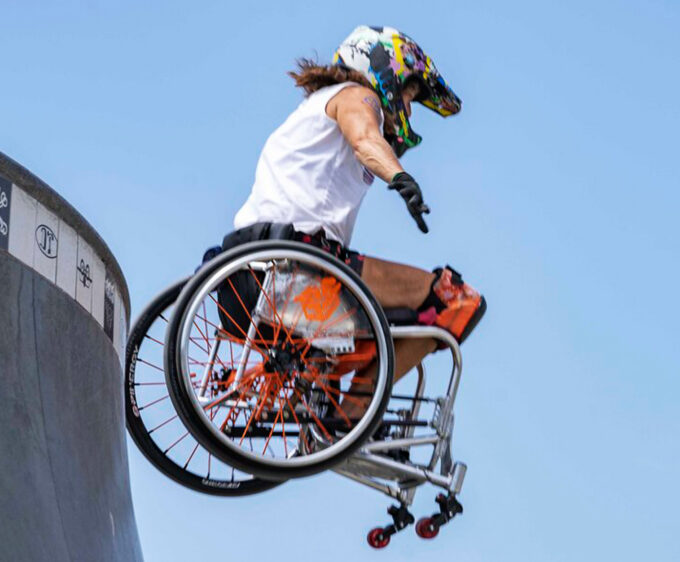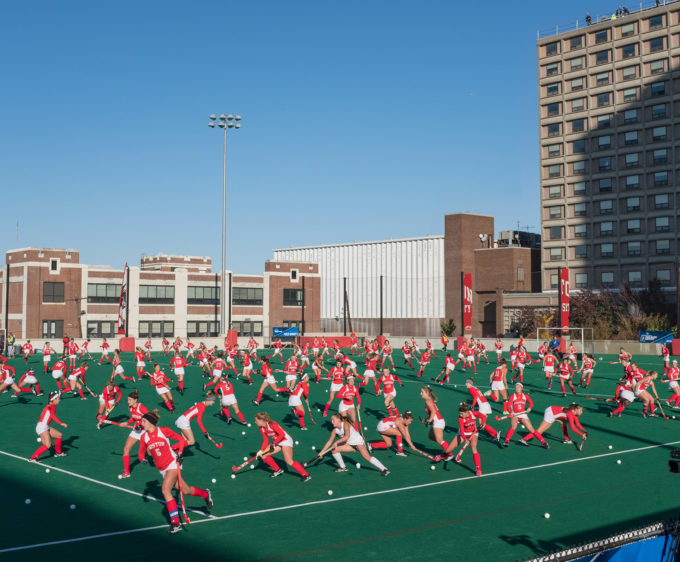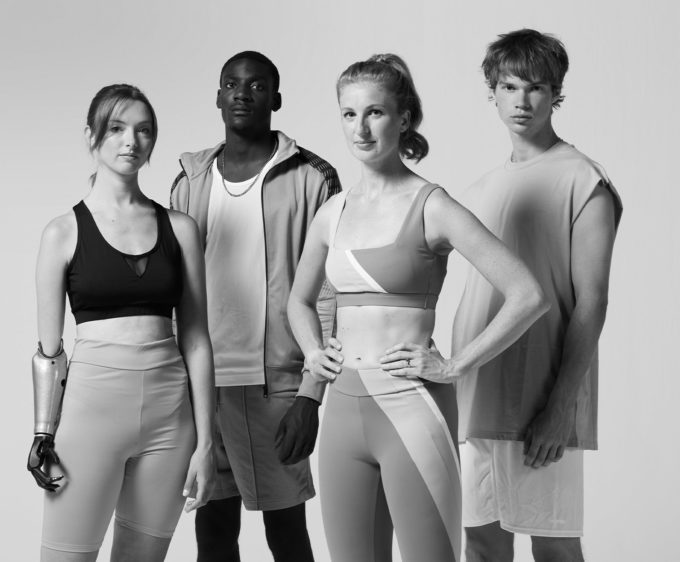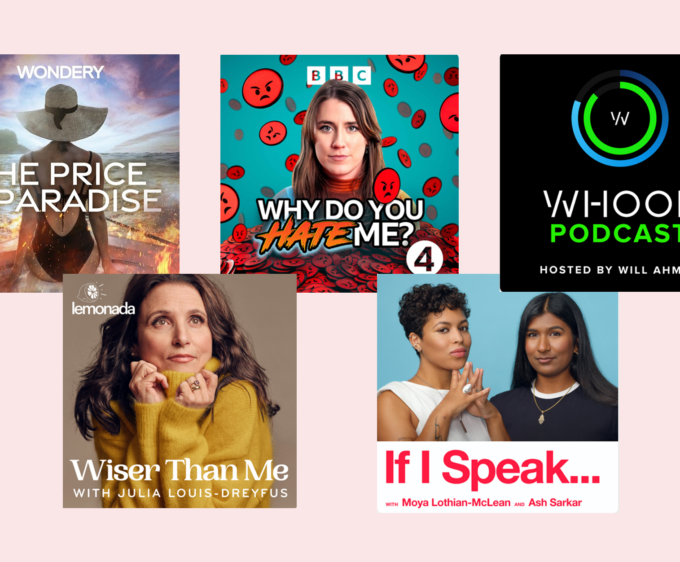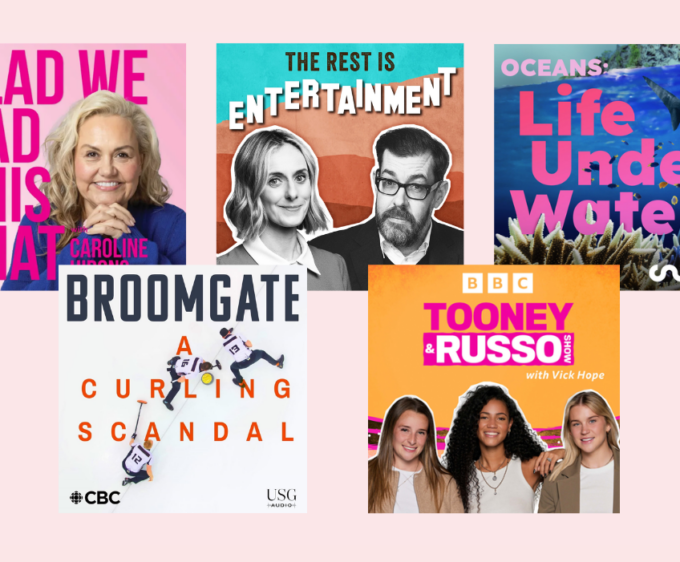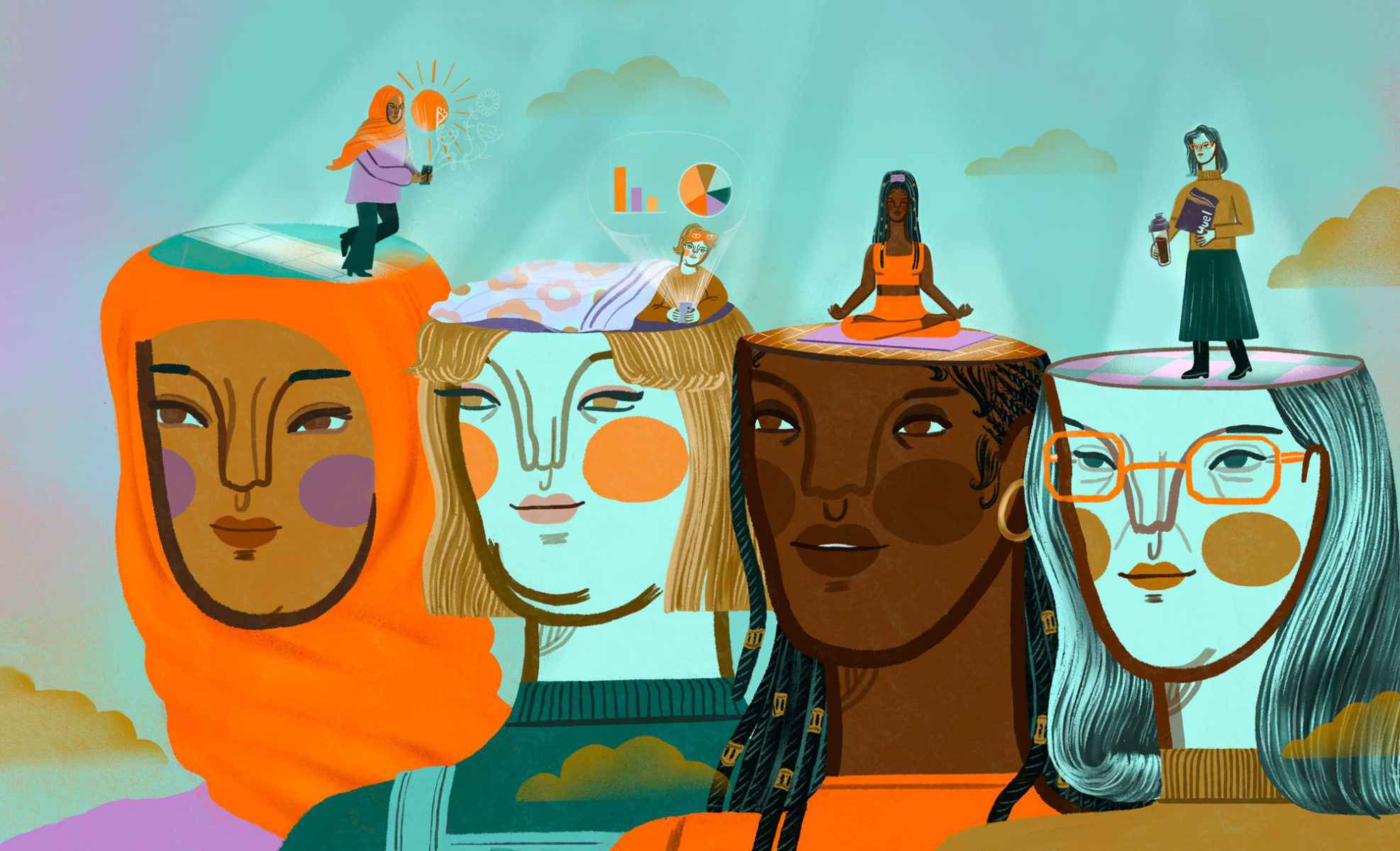
Biohacking: You, But Better
Can tech really help us upgrade our health and wellbeing? Even if you haven’t heard of the term "biohacking" before, you’ve probably encountered a version of it. Glorious investigates the science (and art) behind some of the ways we’re controlling our health
By Alice Barraclough
Illustration by Jamie Beard
Biohacking is, as quoted by Dave Asprey, nutritional guru and founder of Bulletproof and self-proclaimed pioneer of the biohacking movement, “the art and science of changing the environment around you and inside you so that you have full control over your own biology”.
Put simply, it’s the process of “upgrading” your mind and body in order to feel better – and nothing is off-limits. From tracking your sleep and tweaking your diet, to physically changing your biology by injecting a younger person’s blood into your veins (yes, that’s apparently a real thing), some biohackers meticulously log data about their bodies in spreadsheets and have PhDs, while others are just like you and I and are simply looking for ways to improve their health.
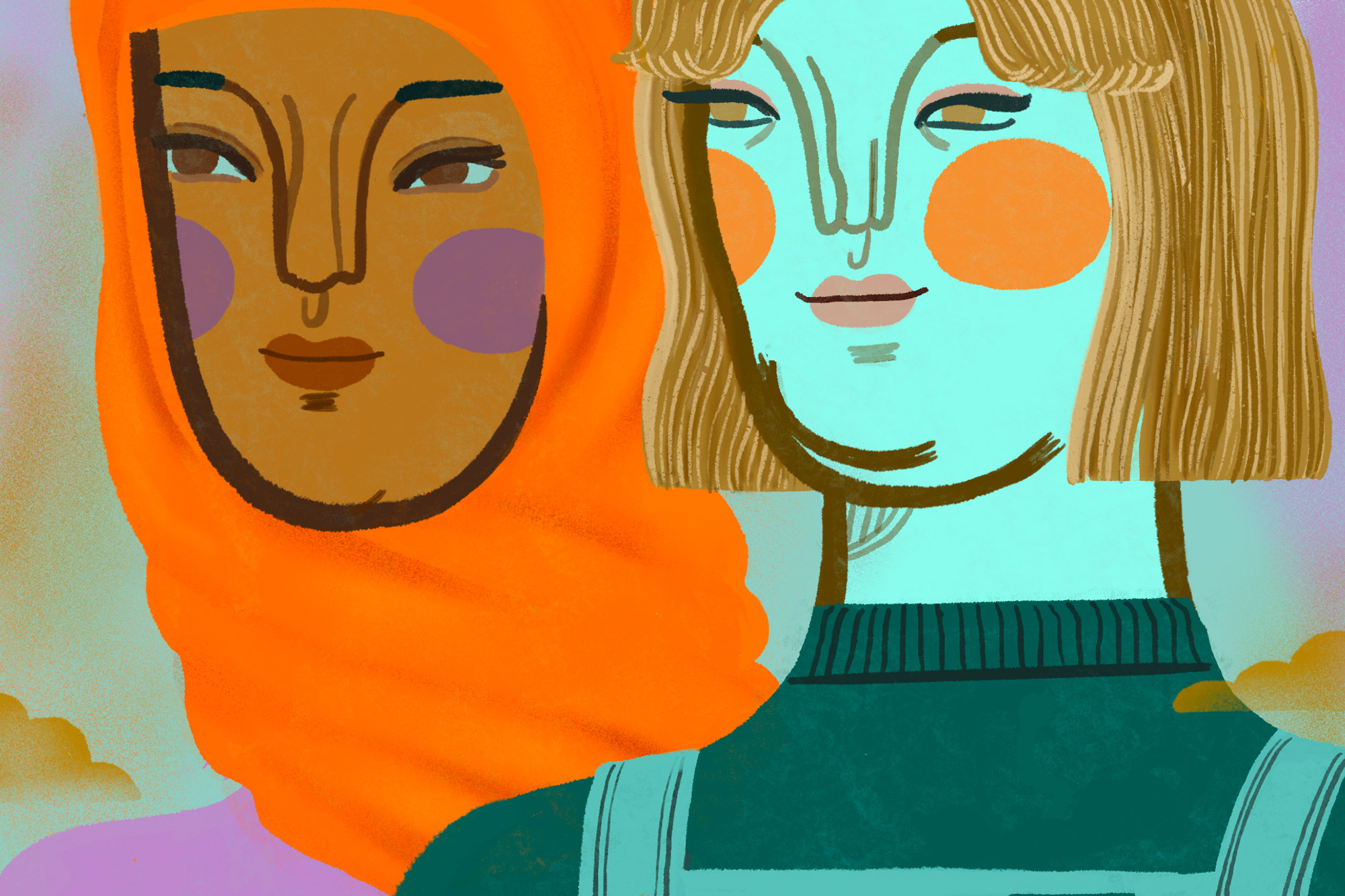
“Really, biohacking is the quest for optimal mental and physical health – who doesn’t want to feel amazing?” says Laura Fullerton, CEO of Monk, a health tech startup that’s launching the first smart ice bath and cold water therapy app, to help people take control of their mental, physical and emotional health. “Whether you want to end bloating, get rid of brain fog, have deep restorative sleep, boost your IQ, prevent chronic disease, feel energised from the moment you wake up to the moment you go to bed – there’s a hack for that. Generally speaking, we’ve forgotten how good our bodies are designed to feel. Biohacking allows us to take control of our own health.”
Perhaps you’ve heard of biohacking, perhaps you haven’t. But the type of biohackers usually making front-page news are the ones who experiment on their own bodies (and, no, it’s not legal). From NASA employee Josiah Zayner, who injected himself with DNA using the gene-editing technology CRISPR at a biotech conference back in 2017 to Ben Greenfield, a 40-year-old biohacker with the biological age of nine (and an obsession with self-testing), you’d be forgiven for thinking that biohacking is something only for the very rich, and very mad, fly-close-to-the-wind types.
“The term biohacking is often perceived as extreme, and conjures images of people putting microchips inside their body. That’s actually transhumanism and I wouldn’t want to put metal in my body,” says Laura. “In reality, you could call biohacking health optimisation.” Plenty of age-old techniques from meditation to intermittent fasting can be considered a basic form of biohacking. So can taking supplements or nootropics, going to a spin class or taking antidepressants. Hacking your biology, so it appears, doesn’t have to be extreme. “Sure there’s loads of brilliant tech and products you can use, but I believe some of the best ‘hacks’ and biggest wins are optimising sleep by, for example, not eating three hours before bed, avoiding blue light or wearing blue-blocking glasses and sleeping in a cool room. Also try cold and hot exposure such as ice baths and saunas, optimising your nutrition, and exercise. To me, biohacking is about recreating a natural world in our unnatural environment,” adds Laura.
In order to understand biohacking a little clearer, we at Glorious asked four women to conduct a series of shifting “wellness” experiments on themselves to see if, using a range of both high and low-tech solutions, they could improve their diet, fitness, sleep and mental health, all in the name of biohacking. Here’s how they got on.
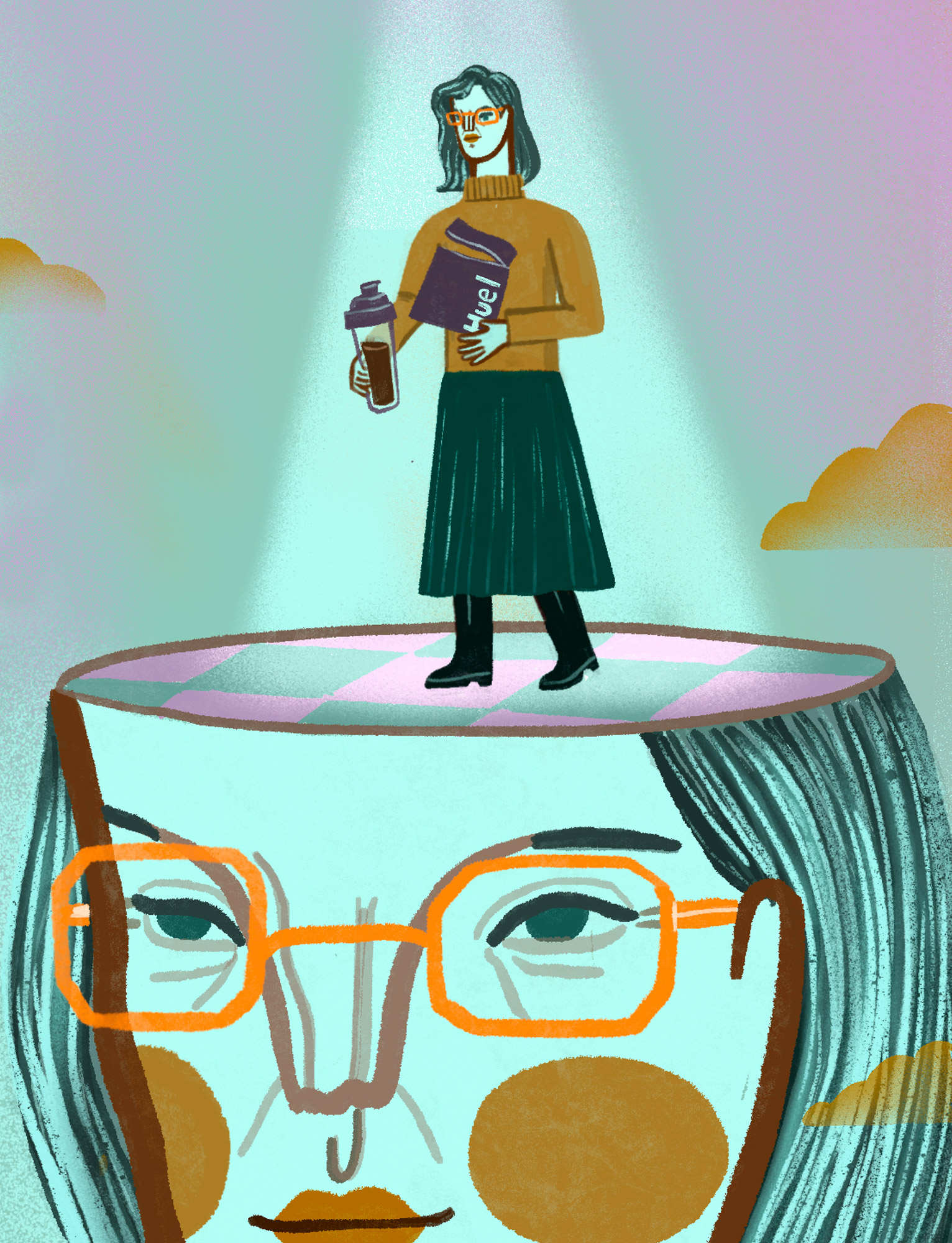
Biohacking Your Diet
One of the most common types of biohacking is nutrigenomics – where you essentially test how different nutrients affect your health and “hack” your biology by personalising your diet to your genes. Lily, a production assistant from London tried Huel, a nutritionally-complete, convenient and affordable food, for 10 days, with the aim of saving herself both money and time, without skimping on the nutrition.
Each Huel product balances 26 essential vitamins and minerals, protein, essential fats, carbs, fibre and phytonutrients and is made from plant-based, sustainable ingredients such as oats, pea, rice, flaxseed, coconut and sunflower. But it’s not exactly food – at least, not in the solid context – and sits somewhere between meal replacements and protein shakes, offering things such as ready-to-drink bottles and hot and savoury cup-a-soup type meals. “My main concern was how is that going to fill me up? How is that going to be substantial?” says Lily. “So I was sceptical”.
For the 10 days, Lily tried Huel’s Ready-To-Drink offering for breakfast and then their Hot and Savoury bag for lunch. “The shake in the morning was so filling – I was actually really impressed. I had loads of energy, too. And while some of the flavours weren’t that nice, I thought the berry one was really good.” With each bottle containing 400 calories in a 35:20:42:3 macronutrient split, it’s arguably healthier than her go-to breakfast: “I usually skip breakfast, or I just have something small like a breakfast bar or croissant, so this actually made me have breakfast,” she says.
The lunches also surprised her. “You open the sachet and it’s powder, so I was apprehensive about how it was a) going to taste like anything that remotely resembles food and b) fill me up – but it did. The tomato one, in particular, was actually really nice – it was just like tomato soup. I wasn’t really expecting to enjoy it, but I did.”
Health
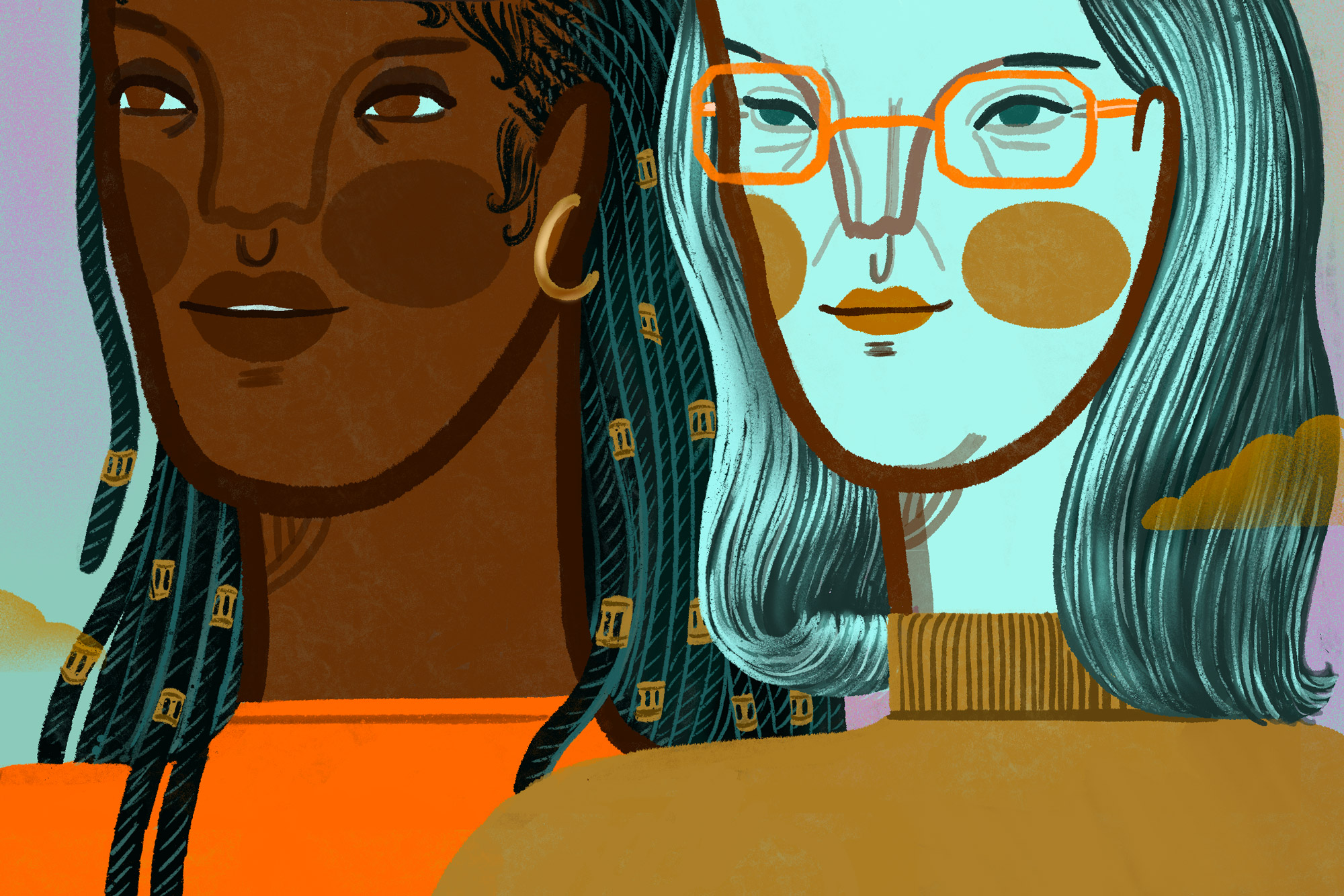
Over the course of 10 days, Lily says she lost weight (although that wasn’t the goal) and that she felt like a “healthier version of me”. “You feel like you’ve had every single vitamin you could ever wish for,” she adds. “Biohacking sounds very extreme and people think it’s extreme. But you can completely tailor something like this to your own routine to ‘hack’ your diet. There are no rules with Huel, you can just fit it around your life and if you’ve got a busy day, then it’s an easy way to make sure you’re getting the nutrients your body needs without stressing about what you’re going to cook. I think there’s nothing wrong with consciously trying to look after yourself.”
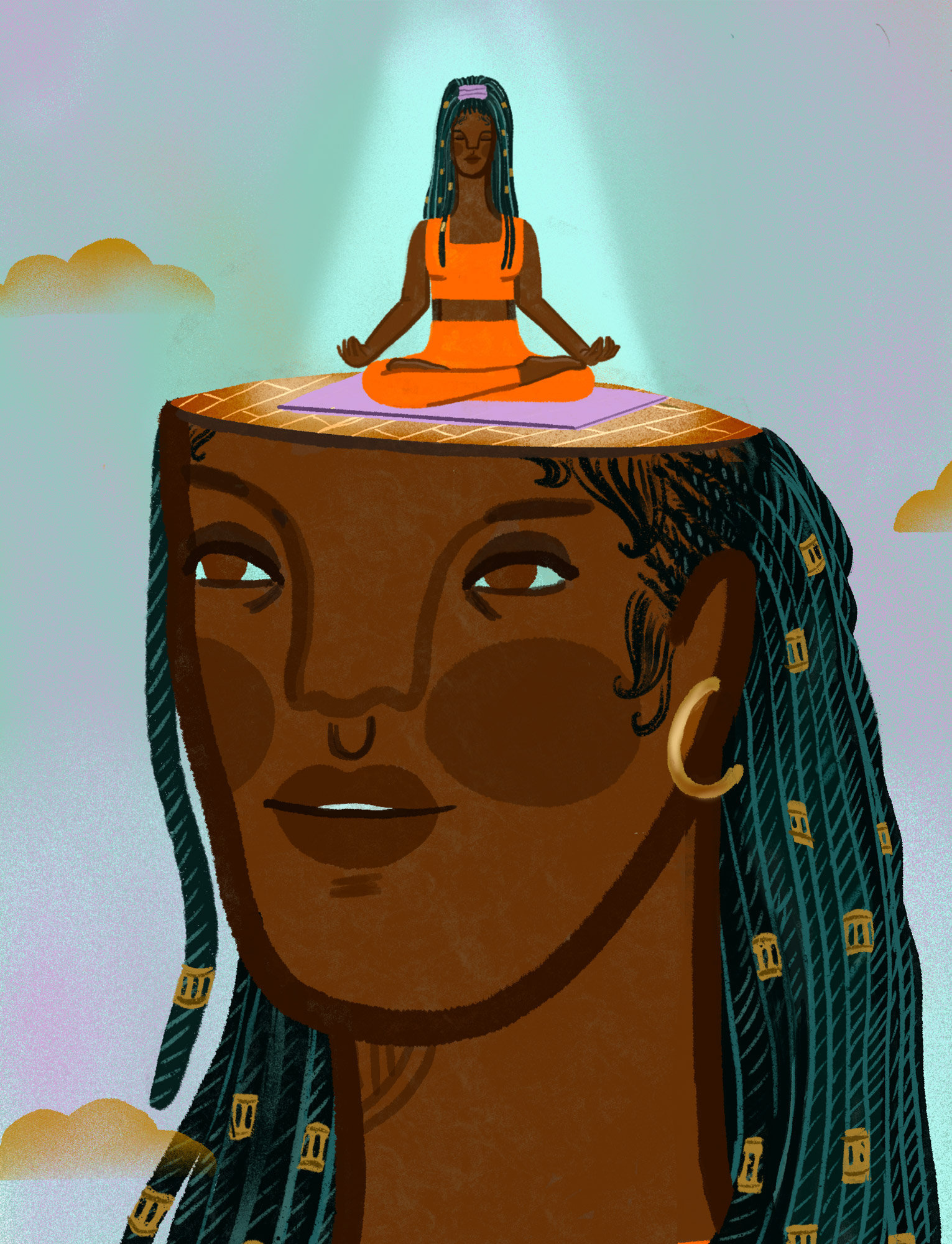
Biohacking Your Body
Agnes, a designer from London, set herself the challenge of doing yoga every day for a month to “find a different way to unwind”. Yoga was something she’d never devoted much time to before but wanted to find something that would help her both physically and mentally. “I spoke to Rosie Hall who runs The Rogue Room and I did a couple of their Sunday Afterparty online classes,” she says. Set in one of London’s most famous nightclubs, The Rogue Room, based at fabric, puts a playful (and contemporary) spin on the traditional practice of yoga. Their slogan? “Non-judgemental, non-dogmatic, all-embracing”.
“The Sunday Afterparty sessions focus on Rocket yoga (rooted in the practice of Ashtanga Vinyasa) which was developed to allow beginners and less experienced people advance their yoga practice quicker. I also tried out some of their breathing exercises which can be accessed on The Rogue Room YouTube – this helped with understanding how to match my breathing and my movements as well as being a good meditative practice,” she adds. “I really enjoyed the playlist that accompanied the online class, I was a bit apprehensive about doing yoga to deep house and melodic tech at 10am on a Sunday but it was much more mellow and my kind of vibe.”
Unwind
On top of following a dynamic yoga practice with The Rogue Room, Agnes also challenged herself to 30 days of yoga with YouTube star Yoga with Adriene, practising every evening as a way to unwind before bed. “I think I like her because she comes across as just so down to earth and normal,” she says. Of course, moving your body in any way, shape or form has been shown to benefit both our physical and mental health – this is nothing new. But how is yoga in particular great for “hacking” your biological health? Well, it has a lot to do with breathing.
Consciously focusing on or changing the way you breathe has been shown to send a signal to the brain to adjust the parasympathetic branch of the nervous system. This can slow your heart rate and digestion, promote feelings of calm and release stress hormones like cortisol. “I think it’s definitely sort of benefitted me in more ways than one,” admits Agnes. “There are, obviously, physical benefits that come with a daily yoga practice – especially as yoga is a strength-based practice, but it’s also helped me to feel less anxious.
“Moving with your breath can be quite a hard thing to get the hang of, but focusing on my breathing not only helped me to be more mindful of you movements, but it also really helped me to anchor myself in the moment. The meditative element to yoga has really helped me to relax and switch off.”
Biohacking Your Sleep
Most people know they need to eat right and exercise to be healthy. But what about sleep? Sleep is essential to better health. In fact, growing evidence indicates that disrupted or insufficient sleep can have pretty damaging effects on both our physical and mental health. That includes increasing the risk of developing heart disease, high blood pressure, stroke and Type 2 diabetes. Emily, a lifelong insomniac, wanted to “hack” her poor sleep, cure her insomnia and boost her energy levels and so enrolled on a specialist course at The Insomnia Clinic. Founded by Kathryn Pinkham, this is one of the UK’s only specialist insomnia services, and the course guides you through the simple steps to improve your sleep and includes everything you would receive in face-to-face sessions.
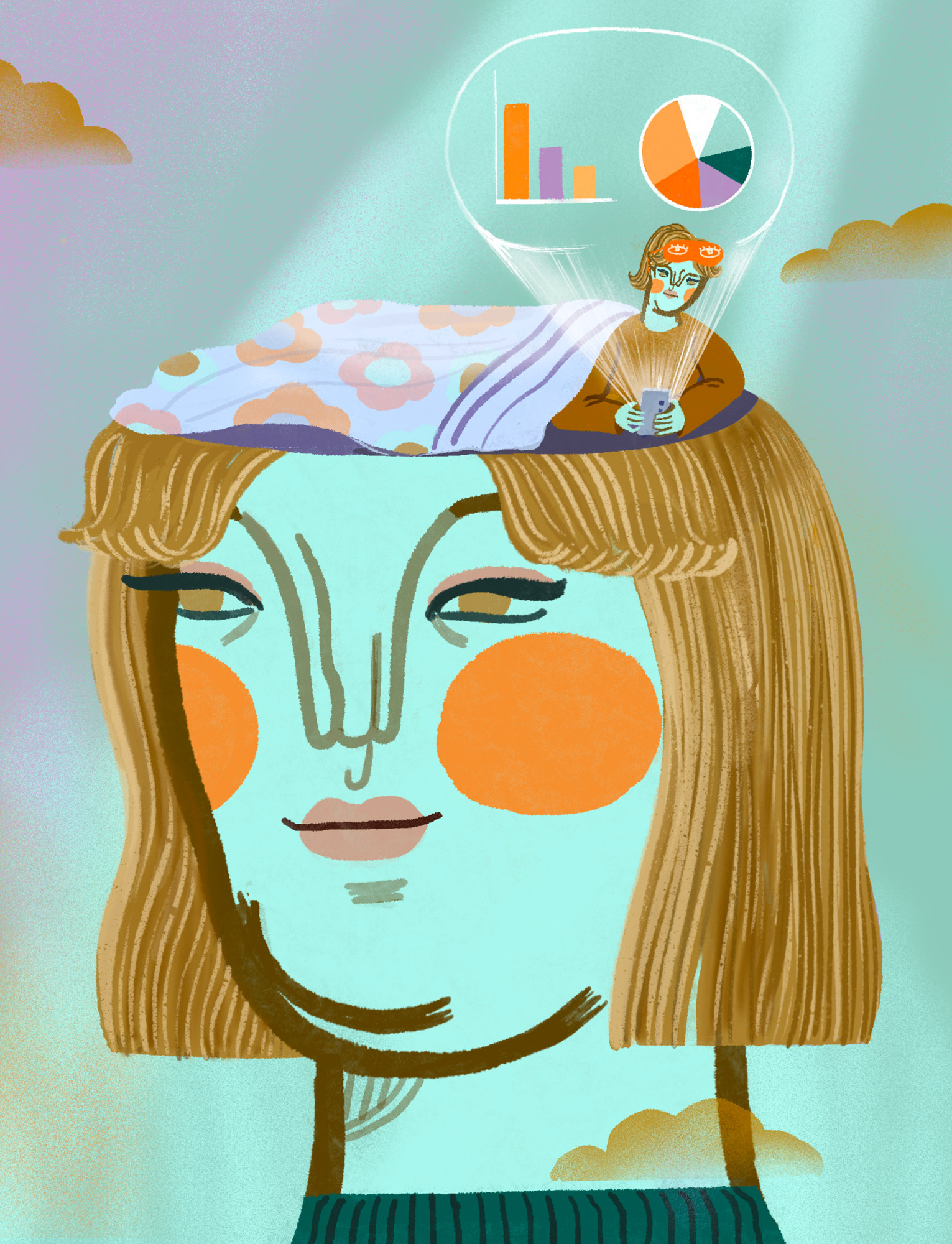
“I was hoping to get a better grip on sleeping, to stop waking up in the middle of the night and to also just feel better the next morning,” she says. The Insomnia Clinic uses cognitive behavioural therapy and “it’s really good,” says Emily. “They talked through all of the different negative associations that people have with their sleep, their sleep cycle and their bed, and they go through the different ways that you can combat the negative associations that you might have with fear of not sleeping. “I was continually waking up in the night and then feeling anxious that I wasn’t sleeping enough. So I wanted to use this experiment as a sort of exploratory tool, to see whether or not I could get a bit more sleep and feel more rested in the morning.”
Affirmation
While there are lots of apps and watches that can track your sleep and let you know how long you’ve spent in each sleep stage, The Insomnia Clinic does something a little different to usual biohacking techniques and does away with technology. “We were told not to rely on watches and tech as they’re not overly accurate and can make you obsessed with the data,” she says. “Instead, you’re encouraged to keep a sleep diary and if you can’t fall asleep within a 15-minute window period, you have to get up and go and do something else.”
On top of this, Emily was armed with a toolbox full of sleep tips and tricks – including things such as avoiding caffeine later on in the day, ditching screens before bed and focusing on emptying your mind before turning in. But has it improved her sleep? “I think it has,” she says. “I’ve certainly noticed I’m not waking up in the middle of the night anywhere near as much as I did. It’s a very practical way of looking at insomnia. Working out the little things you can do, and recognising the things you shouldn’t avoid, like going out in the evenings.”
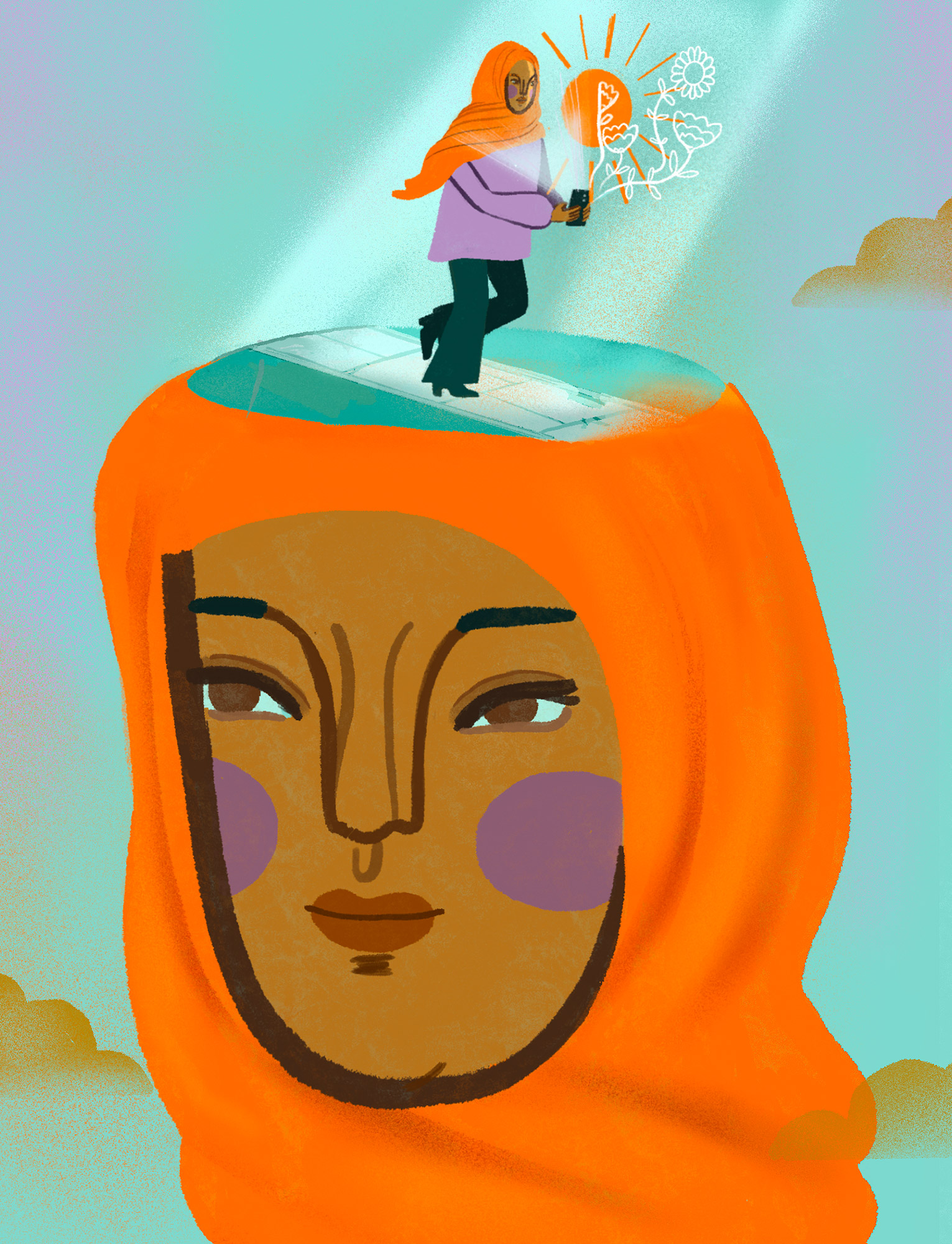
Biohacking Your Mental Health
There’s no doubt that your brain influences your body. In fact, studies have shown how having a positive outlook can have direct, and sometimes rather powerful, health benefits. So Molly, a fashion stylist from London, decided to spend a month manifesting positivity to see if she could “biohack” her mental health. “I’ve kind of always had this impression that positive affirmation apps are a bit ‘live laugh, love’, you know? I was very sceptical about manifesting, but I have a few friends who swear by it,” she says.
Molly downloaded a handful of positive affirmation apps and for the past three weeks has been hit by a wave of positive notifications on her phone, every hour. “In the beginning, somehow I was getting notified every 10 minutes – and that was just way too much,” she says. Her favourite, an app called I am, asks you which areas of your life you’d like to improve – such as positive thinking, being thankful, loving yourself or personal growth.
“I’ve had a particularly stressful couple of weeks – my father’s been really ill, work has been stressful and I’ve had to pay my tax bill. And, actually, I found that taking two minutes just to read a positive mantra has kind of helped. Although, I did feel a bit stupid saying it out loud,” she says. “I’m quite sceptical, but I think because it’s so broad and general, it means you can apply them to anything. For example, one of the mantras today was: ‘I will focus my energy only on what I can control’. That can apply to anything – but when you’re feeling out of control and take a couple of minutes to read something like that, it’s weirdly quite comforting.” Has it helped to rewire her brain and change any negative thought patterns?
“I’m still quite sceptical, but I do think manifesting and positive affirmations can be helpful. It makes you stop and pause and notice what’s going on and see how you’re feeling. It basically forces you to check in with yourself, and that can only be a good thing.”
The Verdict
From radical experimentation to everyday lifestyle tweaks and choices, the definition of ‘biohacking’ seems to drastically change depending on who you speak to. But not everyone who’s interested in biohacking is interested in self-experimentation. On a really basic level, biohacking just means wanting to feel healthier and therefore taking some sort of control over your physiology to do so. That could be by maintaining a regular sleep schedule or by moving your body, eating good food or even just thinking positively. After all, there is no one size fits all when it comes to health.
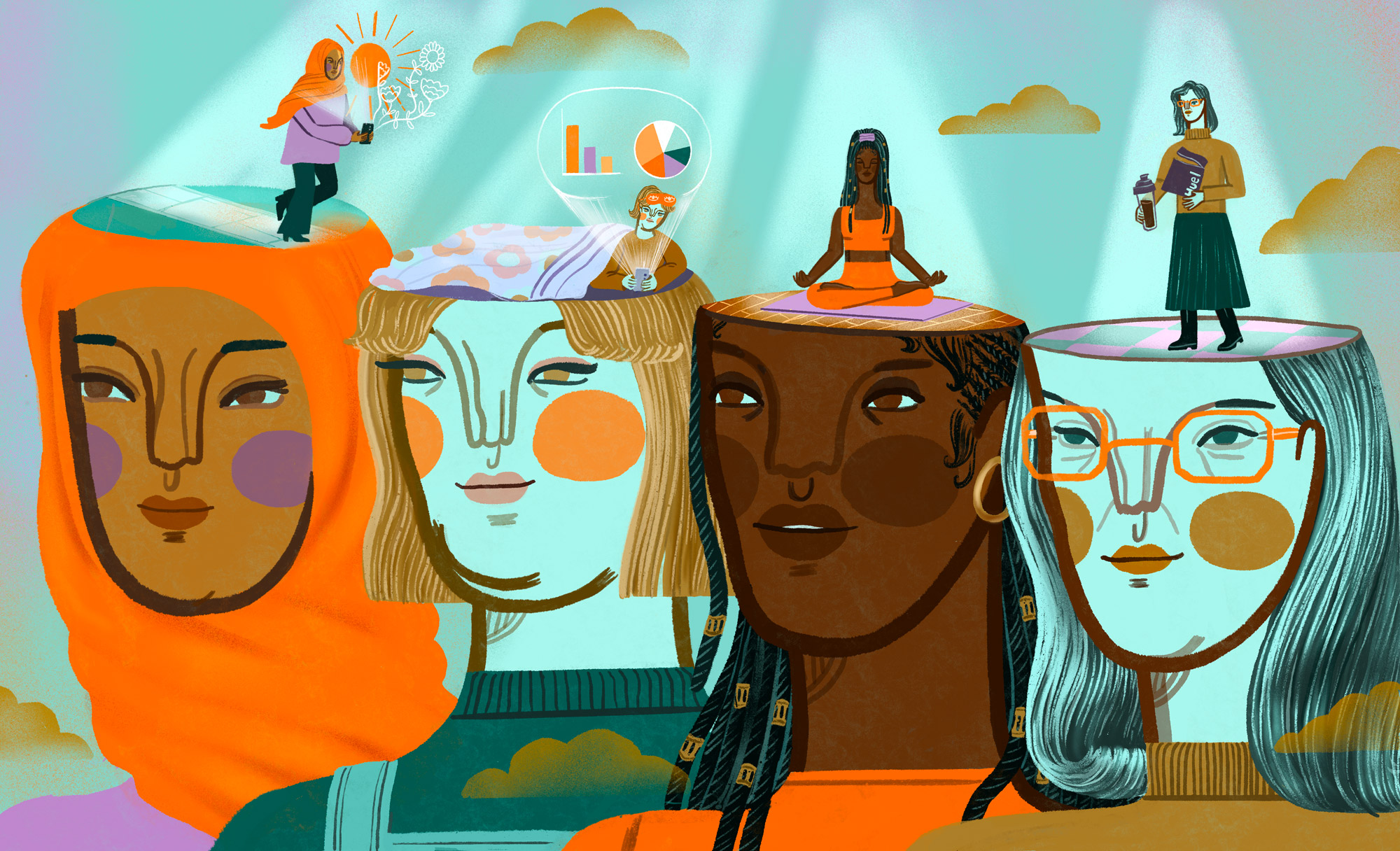
Editorial Design & Art Direction Root, Illustration Jamie Beard
